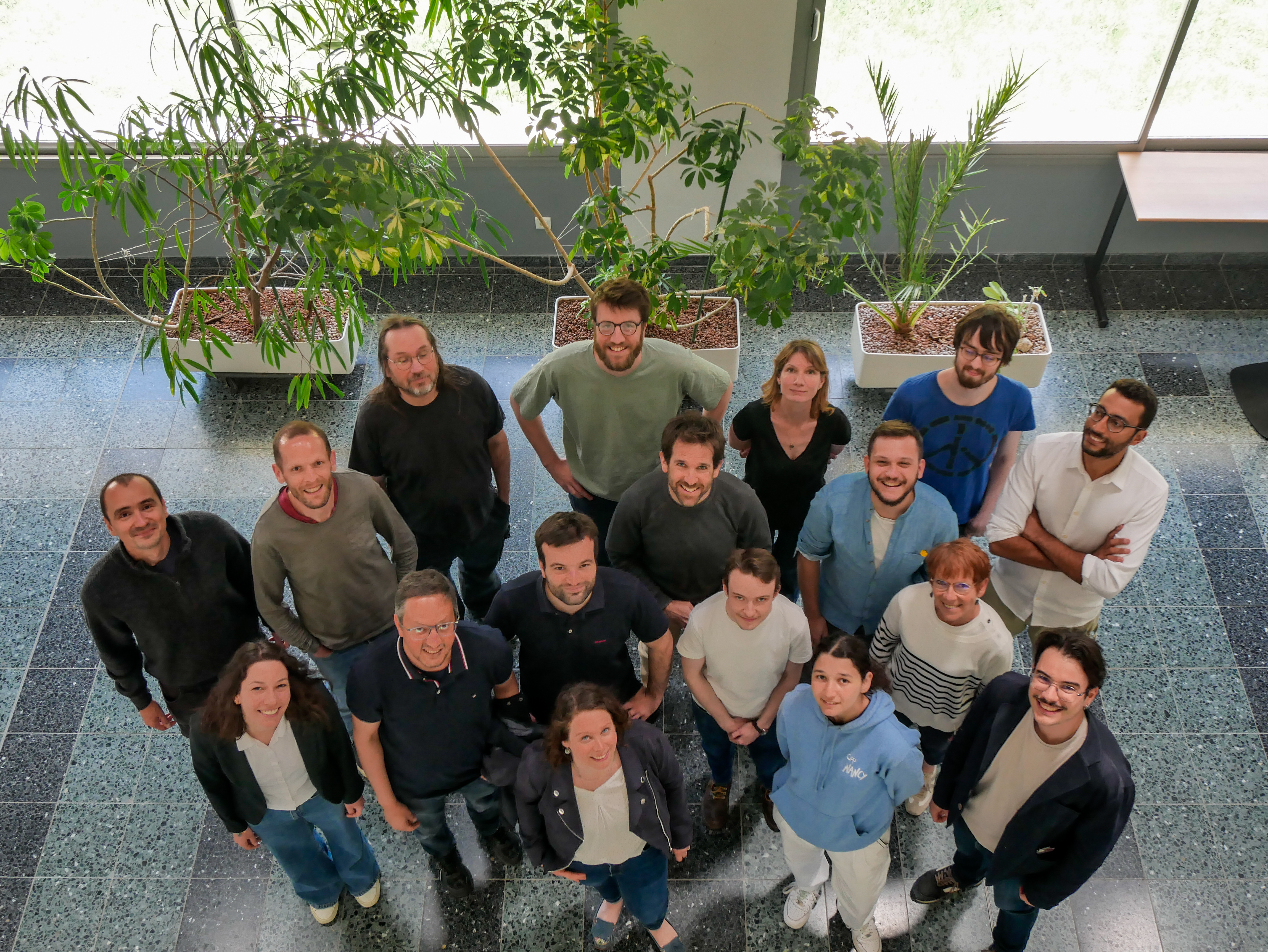PhD opportunities
RING proposes on average 2 PhD scholarships every year which are listed on this page. Spontaneous applications will, in general, not be considered.
If you don't have yet the geoscience + programming + maths qualifications to start a PhD, our MSc in numerical geology may interest you.
We currently do not have any PhD project open for applications.

Photo credits: RING
PostDoc opportunities
We welcome Post Doc researchers who are interested in working on RING's research topics. If you have some ideas, which intersect RING's research interests, we will help you with your application to Marie Skłodowska-Curie Actions, Fond National Suisse, and other scholarship programmes. You can find out more about RING's technologies and publications.
Postdoc positions for which funding has already been secured are listed below. Application files must be sent to This email address is being protected from spambots. You need JavaScript enabled to view it. and must include:
- A cover letter
- A CV, including list of publications and contact information for two or more referees
- The PhD thesis
- If available, the PhD review and defense reports.
Project : Accurate and efficient geophysical potential field response on implicit structural geological models
Start date: From Autumn 2025 (depending on candidate availability)
Application process: Closed
Project : New approaches for uncertainty quantification in stratigraphic correlation and modeling
Start date: From Autumn 2025 (depending on candidate availability)
Application process: Closed
- Details
- Category: Work with us
Masters in France correspond to 5 years of higher education. There are two options to joint RING, with different admission pathways and constraints (both open to Eiffel excellence scholarships for outstanding students):
Pathway 1: ENSG Numerical geology Option (GN)
The Nancy School of Geology (ENSG) is the major geoscience engineering school (Grande Ecole) in France. ENSG students receive a high-level STEM + geoscience education from semesters 5 to 7, which allow them to become versatile. ENSG students can then choose the numerical geology pathway in semesters 9-10.
In this specialization, they learn the fundamentals of subsurface computer-based modeling methods using mathematical and computer science concepts (machine learning, geometry, topology, statistics, inverse methods). They build their programing and software development skills to work in large-scale software teams. They develop programming skills for scientific computing using C++. In complement to their base geoscience education, they also develop domain knowledge by working on case studies using examples of subsurface modeling for reservoirs and mining.
These skills are complemented by a significant attention brought to an individial R&D project. The Research for Integrative Numerical Geology (RING) team proposes several projects every year, and students also benefit from the team's industrial network for summer internships.
For ENSG students, joining the GN option is interesting because :
- The personal projet is a very important part of the course as it gives students the opportunity to put their knowledge in geosciences and programing in practice.
- ENSG students can enroll into a "contrat de professionalisation", split between the courses and a company work placement all-year long. In that case, students get a full time salary paid by the company. All students have at least 16 weeks full-time of intersnhip during the last semester.
- This cursus prepares students for software-related positions, giving them the ability to take part and interact with all actors of the software ecosystem (product management, research, development, quality insurance, sales).
- The ENSG Engineer diploma is highly recognized nationally and in some countries.
To apply, you must enter the ENSG's "Diplôme d'ingénieur" either in 1st year after a concours d'entrée or a Bachelor, or in 2nd year after a M1.
Pathway 2: Master 2 STPE / GN information
The M2 GN has almost the same teaching contents as the ENSG option described above (refered to as 'Mutualization'), and is accessible directly for students who have the appropriate background.
As compared to the ENSG engineering degree, the M2 degree is more research oriented:
- It includes a longer laboratory internship, with a bigger and therefore a more ambitious project, usually enhanced by an article in the annual congress organized by the GeoRessources lab's RING Consortium. The internship is from mid-February to mid-May.
- Before the internship, you will have the opportunity to explore the scientific litterature with a bibliographic project.
- This lab experience can help you decide if Research interests you and gives you more credibility to apply for a PhD in Nancy or elsewhere.
- The Master is recognized internationally (the Engineer diploma is in theory equivalent however in some countries you may be asked for a text explanation when you apply for a position).
- You can apply for excellency scholarships from the ORION program.
All M2 students can also make a summer internship with a company after their reseacrh internship.
Candidate profile
Students must have a M1 (or a M2 in Geosiences or geophysics) to apply directly for a M2. A prerequisite for admission at M2 level is programming experience. The M2 starts with Advanced C++ class, so students are strongly encouraged to follow an introductory C++ programming class before joining.
Students with diplomas obtained abroad are advised to have a M2 level to apply.
Candidates must be rigorous, autonomous, with a strong motivation and a scientific questioning mind.
How to apply
Click here (Etudes en France) if you apply from Algeria, Argentina, Bénin, Brazil, Burkina Faso, Burundi, Cameroun, Chili, China, Colombia, Comores, Congo, South Corea, Côte d’Ivoire, Djibouti, Egypt, Gabon, Guinea, Haïti, India, Indonesia, Iran, Japan, Koweit, Liban, Madagascar, Mali, Maroc, Maurice, Mauritanie, Mexique, Peru, République démocratique du Congo, Russia, Sénégal, Singapore, Taiwan, Togo, Tunisie, Turkey, USA or Vietnam.
In all other cases: Click here to apply to the STPE Master via e-candidat.univ-lorraine
Opening date for applications: 15/03/2025
Deadline: 15/06/2025
Note : If you are intersted in a work-study contract, you must still apply via e-candidat before the deadline above without waiting to find a company.
- Details
- Category: Work with us
